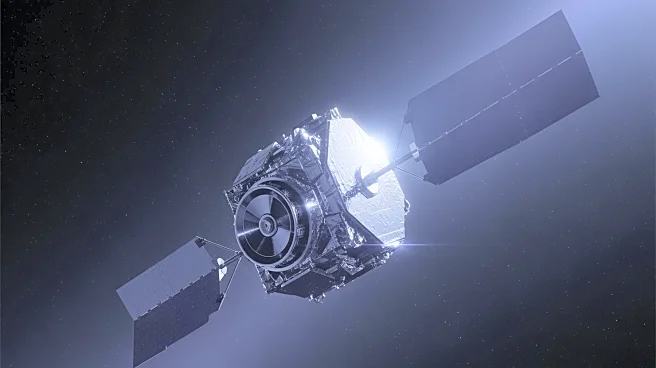What's Happening?
A Russian satellite, known as Luch-Olymp, is reportedly maneuvering to an end-of-life orbit, according to Kayhan Space, a Colorado-based firm specializing in spaceflight and satellite analysis. This satellite has been a source of concern for NATO, particularly
Germany, due to its proximity operations with commercial and military spacecraft. The Luch-Olymp satellite, launched in 2014, has been closely monitored for its ability to conduct intelligence operations in geostationary orbit. Recent maneuvers suggest it is nearing the end of its mission, which could temporarily reduce Russia's capabilities in space-based intelligence gathering.
Why It's Important?
The repositioning of the Luch-Olymp satellite highlights the strategic importance of space as a military domain. Russia's development of satellites capable of 'eavesdropping' on other satellites poses a challenge to NATO's deterrence efforts. The satellite's operations have reshaped how safety, intent, and transparency are assessed in geostationary orbit. Germany's defense minister has announced a significant investment in space programs to counter potential threats from Russian satellites. The end-of-life maneuvering of Luch-Olymp may temporarily reduce Russia's intelligence capabilities, but the launch of its successor, Luch-Olymp 2, suggests continuity in these operations.
What's Next?
Russia is expected to continue developing and deploying reconnaissance satellites, including those within its Cosmos series. The launch of Luch-Olymp 2 indicates Russia's intent to maintain its space-based intelligence capabilities. NATO and its member countries may need to adapt their strategies to address the evolving threat posed by Russian satellites. The investment in space programs by Germany and other NATO members could lead to enhanced capabilities to withstand jamming and kinetic attacks, ensuring the security of their satellite communications.
Beyond the Headlines
The maneuvers of the Luch-Olymp satellite underscore the growing militarization of space and the need for international norms and agreements to govern satellite operations. The ethical implications of using satellites for intelligence gathering and the potential for escalation in space-based conflicts are areas of concern. As countries invest in space capabilities, the balance between national security and peaceful use of space becomes increasingly complex.















